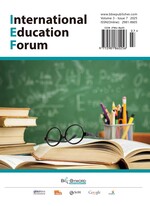Abstract
This paper examines the challenges faced by technical universities in cultivating scientific literacy among their students and proposes targeted strategies for improvement. Drawing on international practices and domestic research, it highlights four key obstacles: insufficient practical teaching resources, inadequate emphasis on innovation, limited proficiency in modern technology tools, and a lack of interdisciplinary collaboration. Corresponding solutions are proposed, including infrastructure enhancement, curriculum redesign, integration of digital competencies, and the establishment of interdisciplinary learning platforms. The study underscores the importance of a holistic and systemic approach to scientific literacy education in technical universities. By addressing these challenges through strategic interventions, technical institutions can better prepare students for the demands of contemporary and future professional landscapes.
References
Hao XJ, He X, 2022, The Game and Integration between AI and Human Intelligence in Knowledge Production and Its Enlightenment to Education. East China Normal University Journal (Education Science Edition), 40(9): 78–89. https://doi.org/10.16382/j.cnki.1000-5560.2022.09.008
Zhan L, Bai Y, 2024, Research on the Evaluation of Middle School Students' Scientific Literacy Based on the Rasch Model. Southeast University Journal (Philosophy and Social Sciences Edition), 26(S2): 45–48. https://doi.org/10.13916/j.cnki.issn1671-511x.2024.s2.010
Zheng J, 2022, Science Education Promotes the High-Quality Development of Vocational Education: A Review of the Forum on the Development of Science Education in Vocational Colleges. China Vocational and Technical Education, 2022(28): 82–87 + 80–81.
Bai YT, Li ZG, 2023, Integration of Science and Education in Vocational Education: Why and How. Vocational and Technical Education, 44(13): 6–11. https://doi.org/10.13884/j.1003-3807hxjy.2024090069
Li XJ, Li M, Wang MQ, 2025, International Comparison and Experience Reference of National Youth Scientific Literacy Assessment Programs: A Case Study of the United States, Australia, and New Zealand. Chemical Education (Chinese and English), 46(3): 109–116.
He EL, Ye XM, Fan Y, 2023, Can Digitalization Enhance Youth's Scientific Literacy: A Comparative Study Based on China and Singapore. Education Research Monthly, 2023(11): 103–112. https://doi.org/10.16477/j.cnki.issn1674-2311.2023.11.002
Niu GX, 2022, The German Dual Higher Education Model: Development Trends and Key Factors for Success. China Vocational and Technical Education, 2022(36): 82–91.
Li MQ, Yu J, 2021, The Operational Logic, Mechanism, and Enlightenment of Germany's “Dual System” Universities. Education and Vocation, 2021(17): 26–33. https://doi.org/10.13615/j.cnki.1004-3985.2021.17.004
